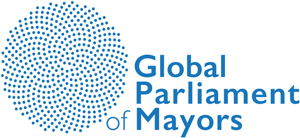21 July, 2021 – As UN Secretary-General António Guterres argued, “there is enough food in our world now for everyone, if we act together.” But we must act now. The Global Parliament of Mayors (GPM) calls on governments, international financial institutions, and other relevant institutions to take urgent action to solve the short-term crisis and prevent long-term catastrophe.
Global hunger has reached new record levels. There is severe acute malnutrition in parts of the world, from the Sahel region in Africa to the Middle East, Central Asia, and the Americas, including Syria, Afghanistan, and Haiti.
As UN Secretary-General stated “In just two years, the number of severely food insecure people has doubled, from 135 million pre-pandemic to 276 million today. More than half a million people are living in famine conditions – an increase of more than 500 percent since 2016.” Moreover “tens of millions of people [are threatened to be tipped] over the edge into food insecurity, followed by malnutrition, mass hunger, and famine, in a crisis that could last for years.” Months of warnings about a global hunger pandemic have largely been ignored.
As detailed by the UN’s World Food Programme’s analysis and that of other UN agencies and leaders, several factors are driving the current hunger crisis, including most importantly: conflicts and Russia’s war in Ukraine and other conflicts; climate change; global inequality and the uneven impact of the economic shock caused by the COVID-19 pandemic; higher costs combined with an underfunding of humanitarian aid; and, in a related long-term driver, the replacement of local agriculture by industrial agriculture oriented to export and backing access too food to rural populations.
Recognizing these global forces shaping local crises, and building on the call of the UN Secretary-General, the UN General Assembly, and those many other actors around the world, the GPM asks governments, international financial institutions, and other relevant institutions to take urgent action, to solve the short-term crisis and prevent long-term catastrophe by taking the following actions:
- Provide immediate international humanitarian funding and step-up diplomatic actions to prevent food insecurity and the use of starvation as a tactic of war. The international community must respond now to avoid a catastrophe (see Joint NGO Statement). As the UN Secretary-General stated, humanitarian organizations have the expertise to prevent famine, but they urgently need resources to finance their operations.
- Invest in long-term food security by tackling the underlying causes of the current crisis. Emergency aid alone is not enough to end this crisis. As the drivers of the current crisis are deeply rooted in a larger crisis induced by conflicts, climate change, and global inequality, a holistic and coordinated approach is required as is argued by OCHA. In line with the Joint NGO Statement, we ask our global leaders to step up diplomatic efforts to end the war in Ukraine and work together to advocate for rights-based policies on trade, economics, climate, food systems, and social protection, and avoid restrictive trade measures that threaten to plunge millions more people into acute food insecurity. As mayors from around the world, we are well aware that the development of long-term sustainable food systems is a shared responsibility between local, national, regional, and global actors. Acting within the wider international system, cities play a crucial role in shaping a sustainable future for all. We ask global leaders to support and engage cities to install sustainable and circular local food systems, fight against unacceptable food waste, work towards climate neutrality and protect biodiversity.
- Establish an integrated food supply policy including an inventory and diagnosis of the resources of a city and its metropolitan region and an ecological transition towards more local, circular and short chained food production and distribution. This transition also includes processes of commoning urban agriculture, food distribution, social kitchens, food for schools and children, etc. Every city can benefit of drafting a balanced regional food-plan.
- As cities play a crucial role in shaping sustainable food systems, we also ask global leaders to support and engage mayors and local leaders to make their food systems more sustainable and support the Milan Urban Food Policy Pact.
This statement is endorsed by the Executive Committee of the GPM: Mayors of Mannheim (Germany, Chair), Banjul (The Gambia, Vice Chair), Rochester Hills (USA, Vice Chair), Braga (Portugal, Treasurer), Monrovia (Liberia), Ghent (Belgium), and Katowice (Poland).

